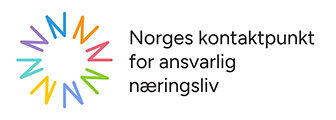The case concerned due diligence, remedy and disclosure related to a crane accident in Korea at Samsung Heavy Industries’ Geoje Shipyard on 1 May 2017. The accident occured during the construction of an oil platform module for the Martin Linge project on the Norwegian continental shelf. Six workers died and 25 workers were injured. The complainants asserted that at least 150 workers were traumatised by witnessing the accident and are in need of treatment.
The complainants were Samsung Heavy Industries Martin Linge Project Crane Accident Workers Support Team (Workers Support Team) and Korean Transnational Corporations Watch (KTNC Watch). The companies involved are Samsung Heavy Industries Co., Ltd. (Samsung HI), Technip Energies N.V., Equinor ASA, and TotalEnergies E&P Norge AS (TEPN).
The complaint was submitted under the OECD Guidelines for Multinational Enterprises to the National Contact Points (NCPs) in Korea, France and Norway. The Korean NCP decided to handle the issues concerning Samsung HI separately. The Norwegian NCP was lead NCP for handling the issues, with support from the British and French NCPs, concerning the companies headquartered in Europe: TEPN, Equinor and Technip Energies. Joint handling of all issues would have been better.
The complainants alleged that TEPN and Technip Energies had caused the accident and that Equinor contributed to the accident due to inadequate due diligence to identify and mitigate the risk of a crane collision. The complainants required that the companies should provide for or cooperate in remediation for the victims of the accident and on improving safety at shipyards. The complainants also asserted that the companies should disclose an investigation report produced shortly after the accident by TEPN, Technip Energies and Samsung HI.
All the parties accepted the Norwegian NCP’s offer of good offices – dialogue and mediation – into which the parties invested much time and effort together with experienced and skilled mediators. The Norwegian NCP commends the parties for their strong commitment to the process over a long period of time. The NCP regrets that due to the COVID-19 pandemic there was no other option than digital mediation, which influenced and prolonged the process. Despite serious efforts from both sides, unfortunately no agreement was reached.
After the failed mediation, the NCP examined the issues put forward in the complaint based on information received by the parties and in accordance with the NCP’s procedural guidelines for handling specific instances. The NCP concludes that TEPN, Equinor and Technip Energies did not cause or contribute to the accident at Samsung HI’s shipyard, but are directly linked by a business relationship. The NCP states that it is clear from the facts and not disputed that Samsung HI caused the accident and is therefore responsible for remediating the negative impact.
However, under the OECD Guidelines the NCP finds room for improvement with regards to the companies’ stakeholder engagement, which should be a key element throughout the due diligence process. The NCP recommends the parties to strengthen their stakeholder engagement in their own business and with suppliers and other business relationships.
The NCP further recommends TEPN, Equinor and Technip Energies to use their leverage with Samsung HI with a view to ensuring remedy for the victims of the accident. The NCP also recommends the companies to encourage Samsung HI to seek collaboration with other industry actors to safeguard health, safety and the environment on shipyards.
Finally, the NCP recommends that the companies follow up their good intentions in the mediation process and share parts of the investigation report with the complainants, in a way that does not jeopardise trust in the industry’s investigations of accidents.
Professor Ola Mestad, leader of the NCP’s handling of the case, states that this Specific Instance highlights that even when enterprises have not caused or contributed to the adverse impacts, they still have a responsibility to use their leverage to influence the entity causing the adverse impact to ensure remediation.
See the Final Statement here.
For commentary/interview, contact:
Professor Ola Mestad, leader of the case handling,
phone +47 928 81 455, e-mail: ola.mestad@jus.uio.no
